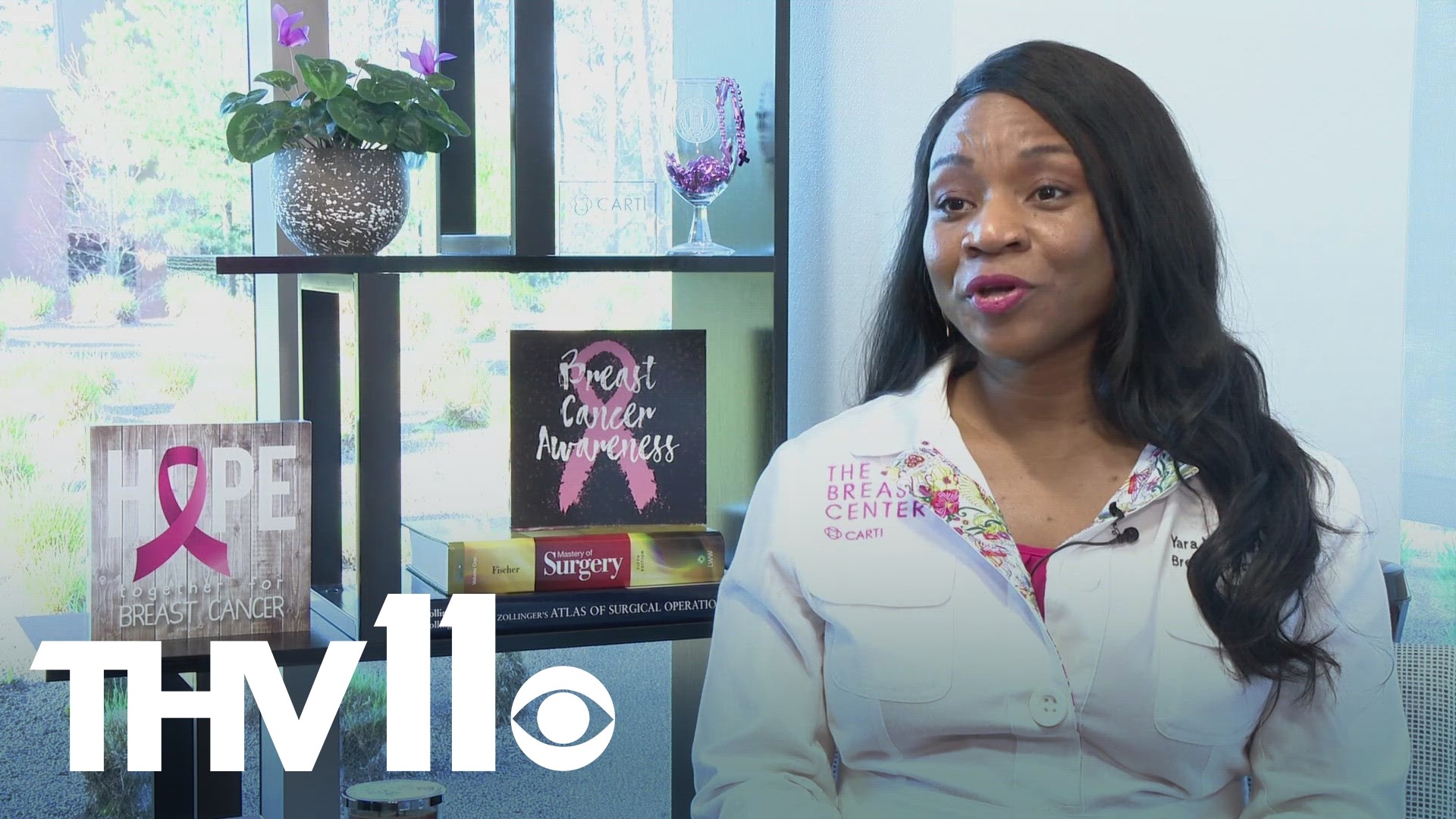LITTLE ROCK, Ark. — March is National Kidney Month, and one Arkansas physician is using her experience as a patient and medical professional to encourage Arkansans to be aware of the signs, symptoms, and potential risk factors of the disease.
“I'm Dr. Robertson. I'm medical director of surgery at CARTI Cancer Center. I'm also a five-year renal cell carcinoma survivor, meaning I've had kidney cancer," Dr. Yara Robertson said.
It was a shock for Dr. Robertson when she found herself on the receiving end of a cancer diagnosis.
With a family history of a collapsed lung, she's always prioritized staying healthy, until one day she couldn’t take a deep breath and experienced severe pain "like a knife" going through her kidney.
“I had four cancerous tumors all on that kidney," Dr. Robertson explained.
She said she didn’t know the signs of kidney cancer until she was diagnosed.
“I thought kidney cancer was a disease of older white men and I was very wrong. Of course, it's the disease of older patients. 64 years old is the average age. But it's actually more common in African-American males. People who have high blood pressure, if you have obesity, of course, genetic mutations, like myself are at increased risk," Dr. Robertson described. "Often it is asymptomatic. So patients are very shocked. Many don't have symptoms and they don't know they have a renal cell, you know, carcinoma of their kidney."
Dr. Robertson now has a gene mutation that puts her at risk for kidney cancer for the rest of her life in both kidneys.
However, she has not had a recurrence and is focused on celebrating life with a different perspective, while also putting a spotlight on awareness towards all cancers.
“I credit kidney cancer with being the best and the worst thing that happened to me, nobody wants cancer. But if I hadn't had kidney cancer, I don't think I'd be back in Arkansas. Now, my priorities on what I felt was important with taking care of my breast cancer patients kind of switched to me coming back here to create a breast program for myself that really dealt with disparities and making sure that women were treated fairly have equitable care, and just taking care of those people who were underserved," Dr. Robertson said.
She said that the scary "C" word doesn’t have to be taboo and that early detection is key.
“You want to go get treated early so that you don't have to die from cancer. It doesn't have to be a death sentence," Dr. Robertson said.
For more information on support groups at CARTI Cancer Center, click here.

